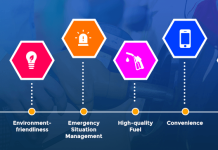Prenatal care is essential to deliver a healthy baby. The more you care for your health, the healthier the baby will be. It involves care before, during, and after pregnancy.
Your healthcare journey must begin with planning to get pregnant. There are certain foods to consume and exercises that you can do to trigger pregnancy.
Monitor your ovulation period and menstrual cycle. Consult your doctor for a regular health check. Make sure that you get enough sleep and avoid taking too much stress.
Your doctor may also get you on some medications or off others that might hinder your successful conception. More importantly, ensure you stay prepared by gathering as much information as possible. It will help you deal with pregnancy issues smartly.
Once you conceive successfully, you must take certain measures to ensure the health of your unborn child. Let us assess what those are.
- Prenatal Care Check Up
As soon as you realize you are pregnant, you must set an appointment with your obstetrician or gynecologist to undergo proper testing. They will assess your overall health and update you regarding the time you conceived. It will help you create a timeline for your pregnancy.
More importantly, your doctor will be able to assess any risks involved in the pregnancy. Suppose they fail to recognize any risks during pregnancy, and your newborn suffers a birth injury. In that case, you can reach out to the Birth Injury Justice Center, where they will help you get the compensation you require from the healthcare professional or institution whose negligence caused your baby the injury.
You can also contact other prenatal care practitioners like dieticians and yoga experts to plan your diet and exercise during pregnancy. They may recommend customized plans according to your stage of pregnancy and other factors.
- Make a Birth Plan
It would help if you prepared yourself for everything to have a comfortable pregnancy and delivery procedure. That includes getting maternity clothes for each trimester, whom to consult if you experience discomfort, procedures to avoid, pain medications that you need and can take, what to do if complications arise, etc.
It is better to discuss your delivery options with the doctor and let them know what you want. The doctor can also suggest the best delivery plan for you. Make sure that your partner or other family members know of your plan. Let them accompany you to doctor visits and keep them updated on the progress.
It will also help to shop for baby items if you cannot do them later. Begin with setting up the nursery and getting the major required equipment. It can include a crib, changing table, baby closet, etc. Decide how you want to design the nursery sooner so it is ready when you bring your baby home.
Similarly, plan other things you may need to take care of during the earlier stages of pregnancy.
- Educate Yourself
Knowing your family history and genetic concerns regarding pregnancy and childbirth is important. List your family’s and your partner’s genetic history and share it with your doctor. Plan your birth around it and take the necessary precautions. If there have been congenital disabilities, voice your concerns with your practitioners.
It is one way of avoiding birth injuries. It will help if you get genetic and other health tests to reduce your chances of getting birth injuries. Make sure you trust the doctors involved in your prenatal care.
However, you might stay at ease if it is your second or third pregnancy. If you had trouble during your previous childbirth, make sure that you take precautions to avoid that from happening again. Reading books on childbirth and baby care can further increase your knowledge horizon.
- Practice Kegels
Your pelvic floor can become loose during pregnancy and after giving birth. It might get hard to control your bladder.
To control that, you can perform Kegel exercises to strengthen your pelvic muscles, uterus, and bowel movements. It can help smooth the delivery process and prevent incontinence problems.
The best thing about this exercise is that you can do it while sitting in the car or standing in line at the grocery store. All you need to do is squeeze your pelvic muscles together as if you are holding your bladder.
Stay in this position for about three seconds and relax for another three seconds. Keep doing this at least ten times. Practice it as often as possible, and you will experience better bladder control and stronger pelvic muscles.
- Eliminate Toxins
Ingesting alcohol, tobacco, caffeine, or passive smoking could harm your child. It can make you sick and sensitive to certain smells and flavors. It is your body telling you to stay away from it.
If you fail to abstain, it may lead to complications and even miscarriage or premature birth. It also includes avoiding alcoholic cosmetics like nail polishes and removers, lipsticks, or foundations containing lead or other harmful toxins.
If you find it difficult to quit smoking or drinking completely, you can consult health centers or rehabs to help you quit.
There are also specialized institutions for expecting mothers to help them with chronic problems and addictions. Seek their help as soon as you can in your area.
Conclusion
A healthy pregnancy equates to a healthy baby. Therefore, you must take special care of yourself to ensure the health of your unborn child. It includes getting a prenatal check-up as soon as you find out that you are expecting.
Moreover, create a birth plan and plan for the arrival of the latest member of your family. Discuss your delivery options with the doctor and prepare the nursery during the earlier stages of pregnancy.
Educate yourself as much as you can. It includes noting your and your partner’s family history, including genetic history. Learn as much as possible about pregnancy to ensure it goes smoothly.
Practice Kegel exercises to strengthen your pelvis muscles. Lastly, avoid toxins, including caffeine, alcohol, tobacco, and makeup products.


























